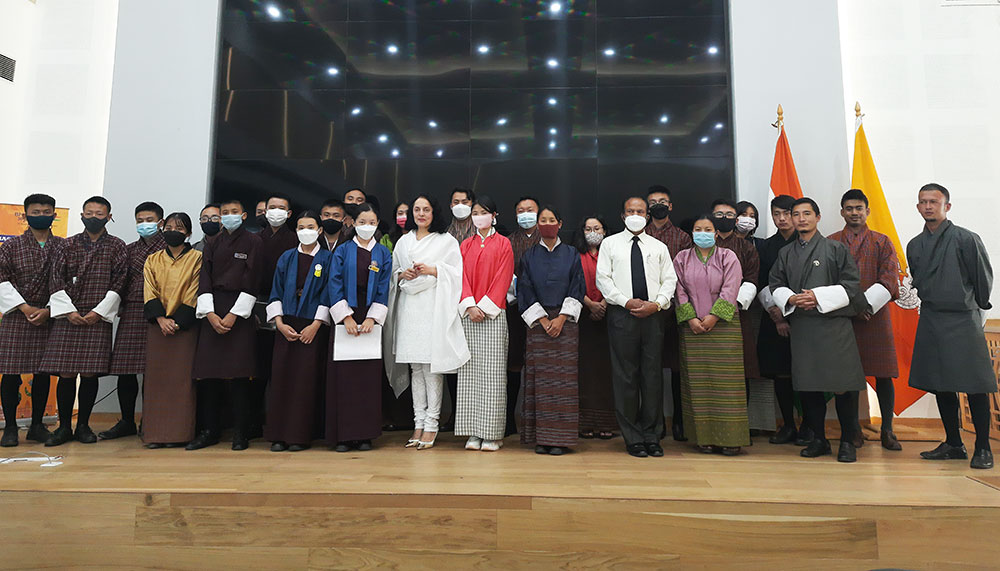India-Bhutan joint satellite to be launched end of this year
Chhimi Dema
Is there the possibility of finding an exo-planet similar to earth? Why are countries spending billions on space exploration instead of solving climate change? What is the status of developing green propulsion?
The questions were many when a group of students had an interactive session with scientists from the Indian Space Research Organisation (ISRO), the national space agency of India. The session on “India’s Space Program–An Incredible Journey!” was a part of the weeklong event that the Indian Embassy in Thimphu is organising to commemorate the 75thanniversary of Independence, which falls on August 15. Students from Lungtenzampa Middle Secondary School, Motithang Higher Secondary School, Royal Academy in Paro, and Royal Thimphu College attended the session.
A press release from the Indian Embassy stated that space technology is a promising area of India-Bhutan cooperation. India and Bhutan are currently collaborating on the joint development of a small satellite for Bhutan which is expected to be launched at the end of 2021. The joint satellite project was announced in 2019 and a memorandum of understanding was signed between the two governments on the cooperation in peaceful uses of outer space on November 19, 2020.
A space engineer from the information and communications ministry, Kiran Kumar Pradhan, said that interactive sessions on space technology were important to allow young minds to learn and fill their curiosity about space science and technology. ISRO’s scientist and scientific secretary, R Umamaheswaran, talked about new space technology that India has achieved and their space journey, said Kiran.
“Their works are commendable and fascinating. Our youth should aim to venture more into space science and technology and try to achieve something similar for the country,” he said.
Speaking at the event, Indian Ambassador Ruchira Kamboj said that science and technology is an important vector for development. “Everything that we do today actually is because of technology and science. We can’t afford to ignore that, ” she said.
Students enjoyed the virtual session with Indian scientists. Sonam Jordan Tenzin, a student from Motithang Higher Secondary School, said that the session taught him lessons that were not in schools.
It was fascinating to learn that our country is developing a satellite with India, he said.
“Programmes like these provide people my age to dwell more into space science and gives avenues to develop new space technologies for the country,” he said, adding that it presents employment opportunities for the youth interested in the field of science.


